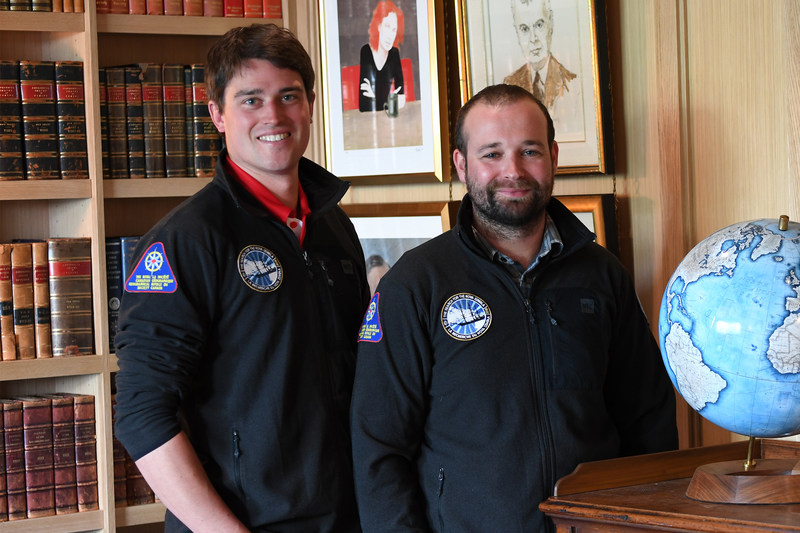From Newswire CA
OTTAWA, Sept. 6, 2018 /CNW/ - Two Canadian researchers have found evidence of a Scottish whaling wreck in the High Arctic, thought to be the first discovery of its kind in the world. Michael Moloney and Mathew Ayre, post-doctoral fellows with the University of Calgary's Arctic Institute of North America, made the find last week. The wreckage is from Nova Zembla, a whaling vessel that sank in a fjord near Baffin Bay in September 1902. The discovery is significant because the British fleet lost over 200 vessels and none have ever been found until now.
"Most Canadians are not aware of the important role that whaling played in opening up the Canadian Arctic," says Ayre. "These sailors formed strong partnerships with the Inuit to learn how to navigate Arctic waters for close to 300 years." The knowledge gained from each whaling trip became extremely helpful to subsequent voyages of the Britain's Royal Navy in their quest to explore the planet's polar regions and discover the Northwest Passage.
"This is a previously unidentified archaeological site, and the first High Arctic whaling ship ever discovered," says John Geiger, Chief Executive Officer of the Royal Canadian Geographical Society. "It is a remarkable story of historical sleuthing supported by fieldwork and adds considerably to the historical record by shedding new light on that treacherous, once great industry."
The team that made the discovery relied on drone footage and sonar imaging. Working off One Ocean Expedition's Akademik Sergey Vavilov ship, they deployed a remote-operated underwater vehicle in a targeted five-square-kilometre search area, which they had narrowed in on through months of research. The pair still needs to further study the sonar imagery to examine some promising shapes, including what appears to be one of the anchors of the ship — straight lines and right angles are indicative of man-made materials. Moloney and Ayer plan on resuming their research next year and will work with local Inuit communities to learn more about the history of Nova Zembla.
"Grassroots underwater archeology on a budget takes time," says Moloney. "This will be a multi-year project that helps Canadians learn more about our maritime history."
From Deeptrekker
From Deeptrekker
The Scottish whaling vessel Nova Zembla wrecked in a fjord off Baffin Bay on Thursday, September 18th, 1902. The crew was rescued by fellow whalers, the Diana and Eclipse.
Alongside newspaper testimonies from the crew on their return, these first-hand accounts place the wreck in a harbour on the east coast of Baffin Island, in shallow water and protected from the destructive effects of turbulent sea ice conditions. Nova Zembla struck a reef while running for cover in a storm. It sank fast and the crew had little time to abandon ship. The valuable whalebone was rescued from its stores and transferred to the Diana, who revisited the wreck the following year and salvaged its rudder.
The Search for Nova Zembla expedition was supported by the Expeditions Program of the Royal Canadian Geographical Society, One Ocean Expeditions, Mountain Equipment Co-op, University of Calgary's Arctic Institute of North America, Deep Trekker: Underwater Remote Operated Vehicles & Drones, and Lens Lenders.
SOURCE Royal Canadian Geographical Society
With thanks to Dave Shirlaw




No comments:
Post a Comment